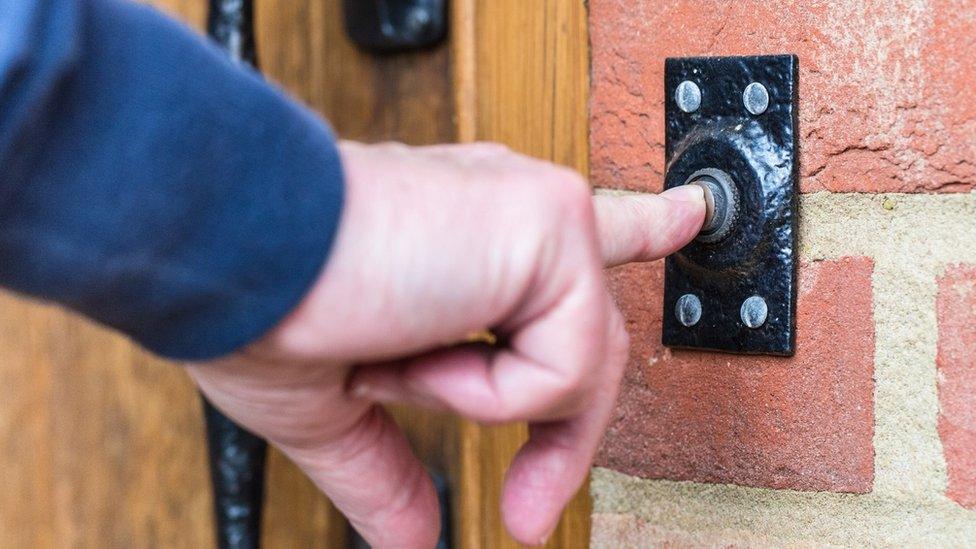Coronavirus: More tests promised for care homes
- Published
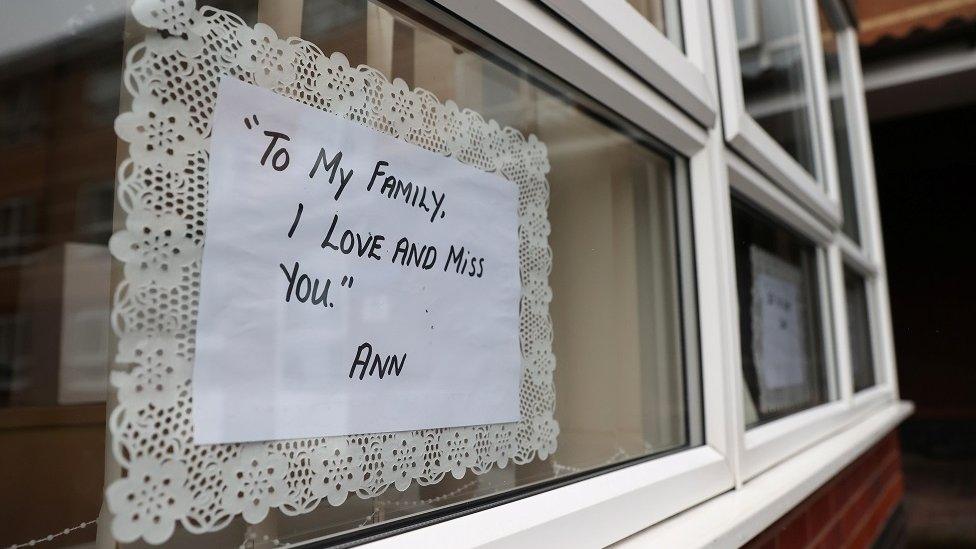
All care home residents and staff with Covid-19 symptoms will be tested for coronavirus as laboratory capacity increases, the government has promised.
Health Secretary Matt Hancock said he was "determined" to ensure everyone who needed a test had access to one.
Prof Martin Green, chief executive of Care England, welcomed the pledge but predicted "logistical challenges".
It comes as a further 761 hospital deaths were announced in the UK, bringing the total to 12,868.
Care providers been calling for more testing for weeks, amid outbreaks at more than 2,000 homes.
At the moment only the first five residents who show symptoms in a care home are tested, to determine whether there is an outbreak of the virus.
Providers have also complained that deaths among residents were being "airbrushed" out of official figures and demanded greater support for the industry.
Meanwhile, Labour leader Sir Keir Starmer is urging the government to publish an exit strategy from the coronavirus lockdown.
Sir Keir said his party would support the government if, as expected, it extends lockdown measures later this week. But he called for more transparency about how and when the rules will be relaxed.
On Wednesday, 651 new deaths were announced in England, 84 in Scotland, 60 in Wales and six in Northern Ireland.
The totals can differ from the number reported by the Department of Health and Social Care, external for the whole of the UK, as they are based on different reporting periods.
BBC head of statistics Robert Cuffe said only Scotland and Wales had seen a post-weekend spike in deaths due to delays in reporting caused by the Easter weekend, giving hope that the daily death toll had stopped rising.
"The overall picture for the UK is almost a week with no growth in the number of deaths announced every day. This adds to the evidence that the lockdown has stopped the growth of the coronavirus," he said.
But he added that more data was needed to know for sure, and the high number of deaths remained a shocking and sad feature of daily life.


In theory, increasing the amount of testing in care homes will be certainly possible as capacity increases.
Over the next 10 days, extra facilities from commercial partners are expected to become available.
The most tests carried out in one day is 18,000. Doing around 50,000 a day certainly looks possible in the coming weeks, but the 100,000 a day pledged by the government will be a stretch.
Logistically, delivering the testing will remain challenging. More than 400,000 frail and vulnerable people are spread across more than 15,000 locations in England alone.
Compare that to around 200 hospitals and it is easy to see how difficult it will be to get out to homes to carry out the tests and then process them quickly enough.
Government officials have always recognised care homes will be the weakest link in the chain of protection they have tried to wrap around the British public.
The nature of care home residents, many of whom struggle with dementia, means it can be difficult for them to follow social distancing and good hand hygiene guidance.
They rely on care home staff for intimate personal care, putting both staff and residents at risk as soon as the virus gets into a home.
Now the virus is circulating in care homes, slowing the spread and saving lives is going to be incredibly difficult.
Every year around 150,000 care home residents die - the fear now is that the number could increase dramatically.

All these sets of figures are only for deaths in hospital. Office for National Statistics (ONS) data, which includes every community death linked to Covid-19 in England and Wales, showed 406 such deaths registered up to 3 April had occurred outside of hospitals - 217 of them in care homes.
The number is expected to have increased since then.
In Scotland, there have been 237 deaths in care homes with coronavirus mentioned on the death certificate, according to figures released on Wednesday.
Britain's largest care home operator, HC-One, said the virus represented about one-third of all deaths at HC-One's care homes over the last three weeks. And MHA, a charity which operates 131 homes, said it had recorded 210 coronavirus-related deaths to date.
Claire Rencher, manager of Veronica House Nursing Home in Tipton, in the West Midlands, told the BBC that some residents had gone to A&E and come back without being tested.
She said she did not feel the home was getting the support it needed from government, while staff said they felt "vulnerable", especially due to the lack of PPE.
Mr Hancock said he would ensure anyone in a care home with symptoms of the virus, as well as any new care home residents being discharged from hospital into care, would be tested.
The Care Quality Commission (CQC) is co-ordinating the effort and will offer tests to the UK's 30,000 care providers by the end of the week, the Department for Health and Social Care said.

'Sense of insecurity'
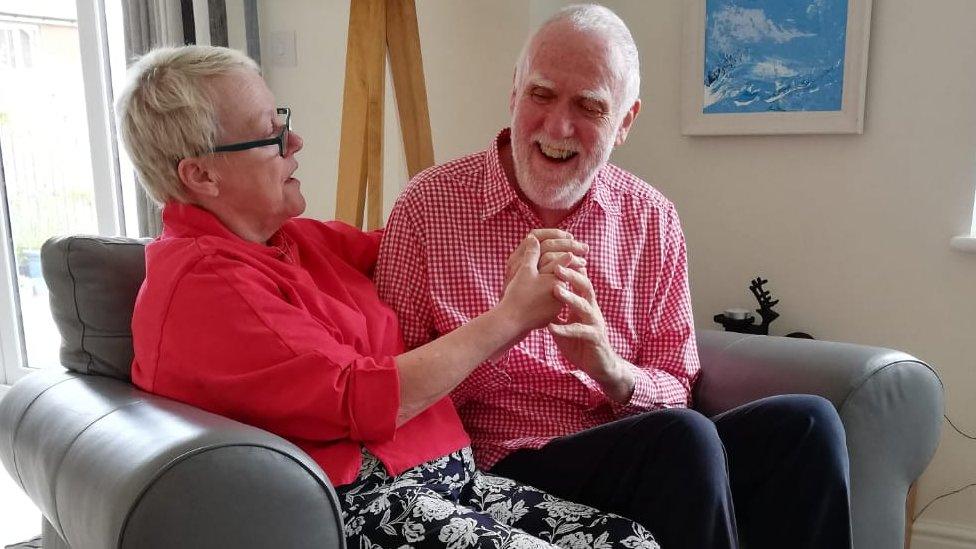
Gail Grant is worried about the virus reaching Ian's care home
Gail Grant, from Swindon in Wiltshire, has not been able to visit her husband Ian for three weeks.
Ian, a former dentist, has dementia and lives in a care home in Marlborough, some 12 miles away. He turned 70 this month.
"Because of his cognitive level, we can't Skype or talk on the phone. He doesn't have any understanding of the situation and doesn't really know us anymore. But it's more me - I'm aware I'm not going to see him," Dr Grant says.
"They say they don't have any cases at the moment at his home. But I think it's a matter of time. And when any carers go down with it, it will be a difficult situation."
She says of the official figures currently just including hospital deaths: "What right do they have to withhold information that should be in the public domain?"

Prof Green said the roll-out poses a "major challenge" and stressed the need to make sure there are enough tests, and to work out how to carry out tests in care homes while keeping residents safe.
He said the distribution of personal protective equipment (PPE) has "started to improve" but that there has been "conflicting guidance" about how it is used.
Social care minister Helen Whately told BBC Radio 4's Today programme the government had delivered more than 7 million facemasks to care providers, set up an emergency supply line to contact for PPE, and distributed stocks to local resilience forums.

A SIMPLE GUIDE: How do I protect myself?
AVOIDING CONTACT: The rules on self-isolation and exercise
LOOK-UP TOOL: Check cases in your area
VIDEO: The 20-second hand wash

She said they have done a "a huge amount to help get PPE to the front line" but acknowledged it was still "worrying" for places where stocks were running low.
Mr Hancock is set to give further details of the testing scheme when the government's coronavirus social care action plan is outlined on Wednesday.
Peterborough care home boss moves in as third of residents die
The government said its increased tests in care homes will bring it closer to the target of completing 100,000 tests a day by the end of April.
The latest figures show a total of 302,599 coronavirus tests have been conducted in the UK.
Dr Clare Wenham, assistant professor of global health policy at the London School of Economics, told BBC Newsnight the government was "nowhere near" hitting its target.
In other developments:
US President Donald Trump said he has instructed his administration to halt funding to the World Health Organization, saying it had "failed in its basic duty" in its response to the coronavirus
The Financial Conduct Authority has ordered insurance companies to pay out claims to firms "as soon as possible" or explain themselves to the watchdog
There are fears that some couples could miss their last chance of conceiving through IVF, after the Human Fertilisation and Embryology Authority (HFEA) said all current treatments must be completed by Wednesday
Children up to the age of 11 are returning to nurseries and schools in Denmark, which was among the first countries in Europe to impose a lockdown

Do you work in a care home? Or do you or your relative live in a care home? Share your experiences by emailing haveyoursay@bbc.co.uk, external.
Please include a contact number if you are willing to speak to a BBC journalist. You can also contact us in the following ways:
WhatsApp: +44 7756 165803
Tweet: @BBC_HaveYourSay, external
Send pictures/video to yourpics@bbc.co.uk, external
Please read our terms & conditions and privacy policy
- Published15 April 2020
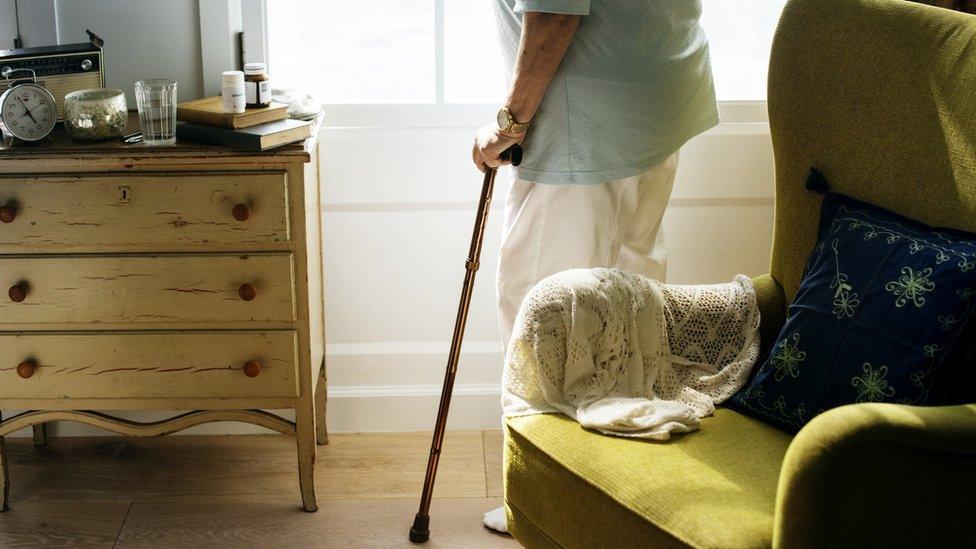
- Published14 April 2020
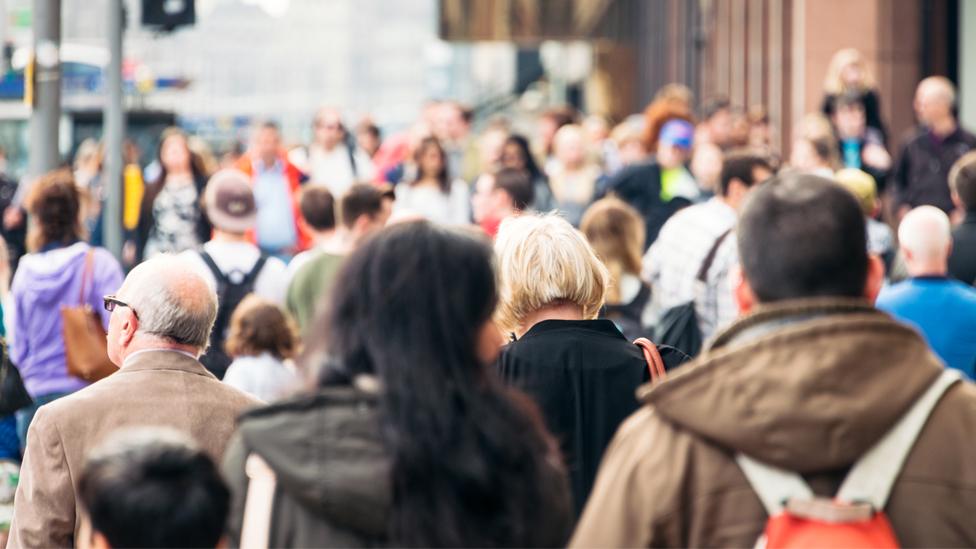
- Published14 April 2020

- Published14 April 2020
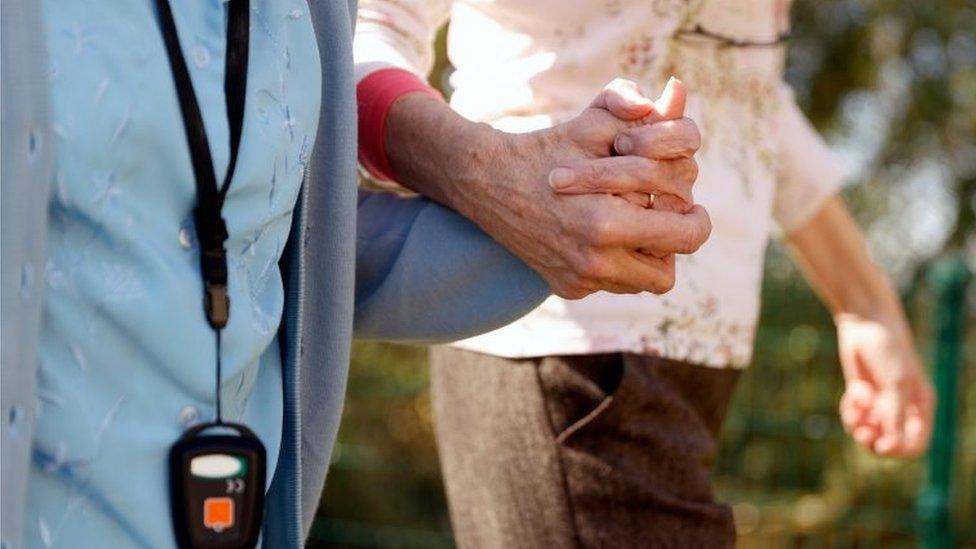
- Published15 April 2020
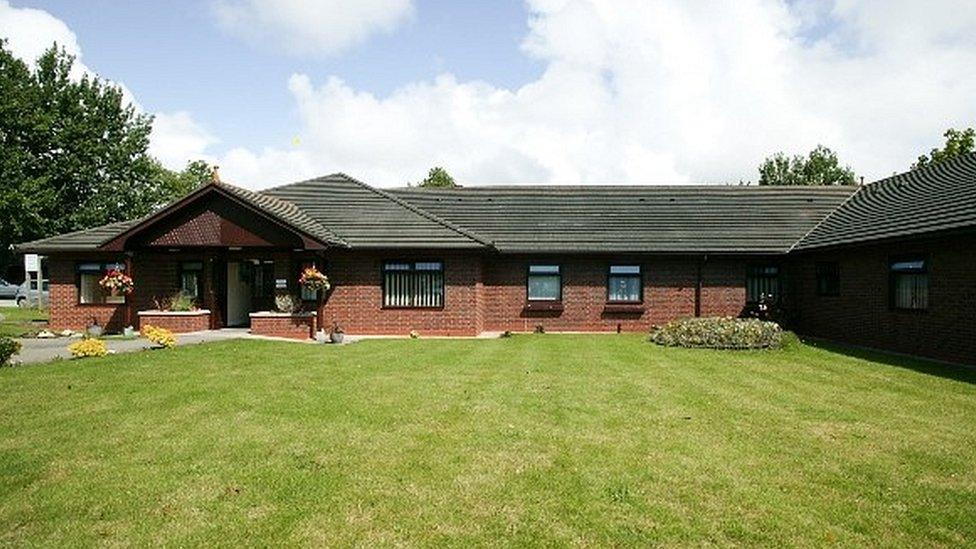
- Published15 April 2020
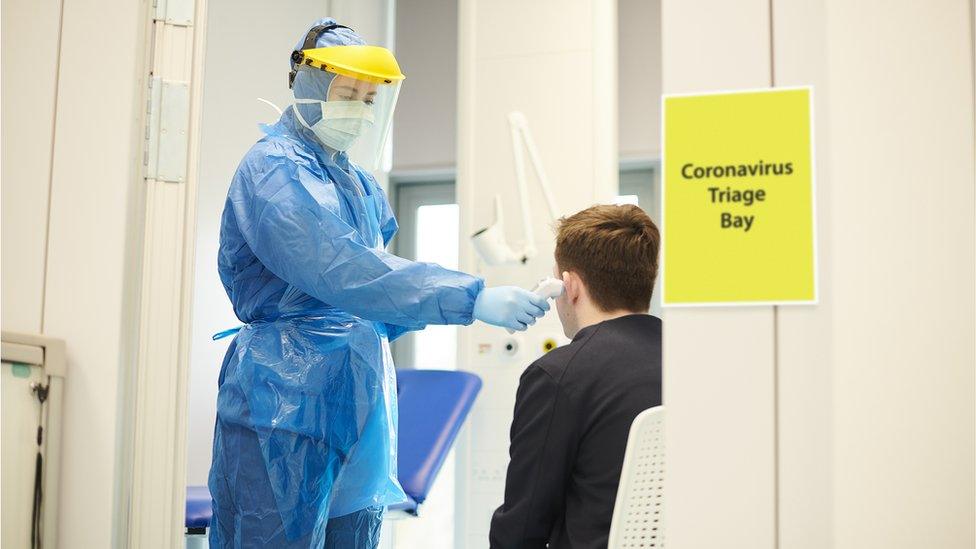
- Published15 April 2020
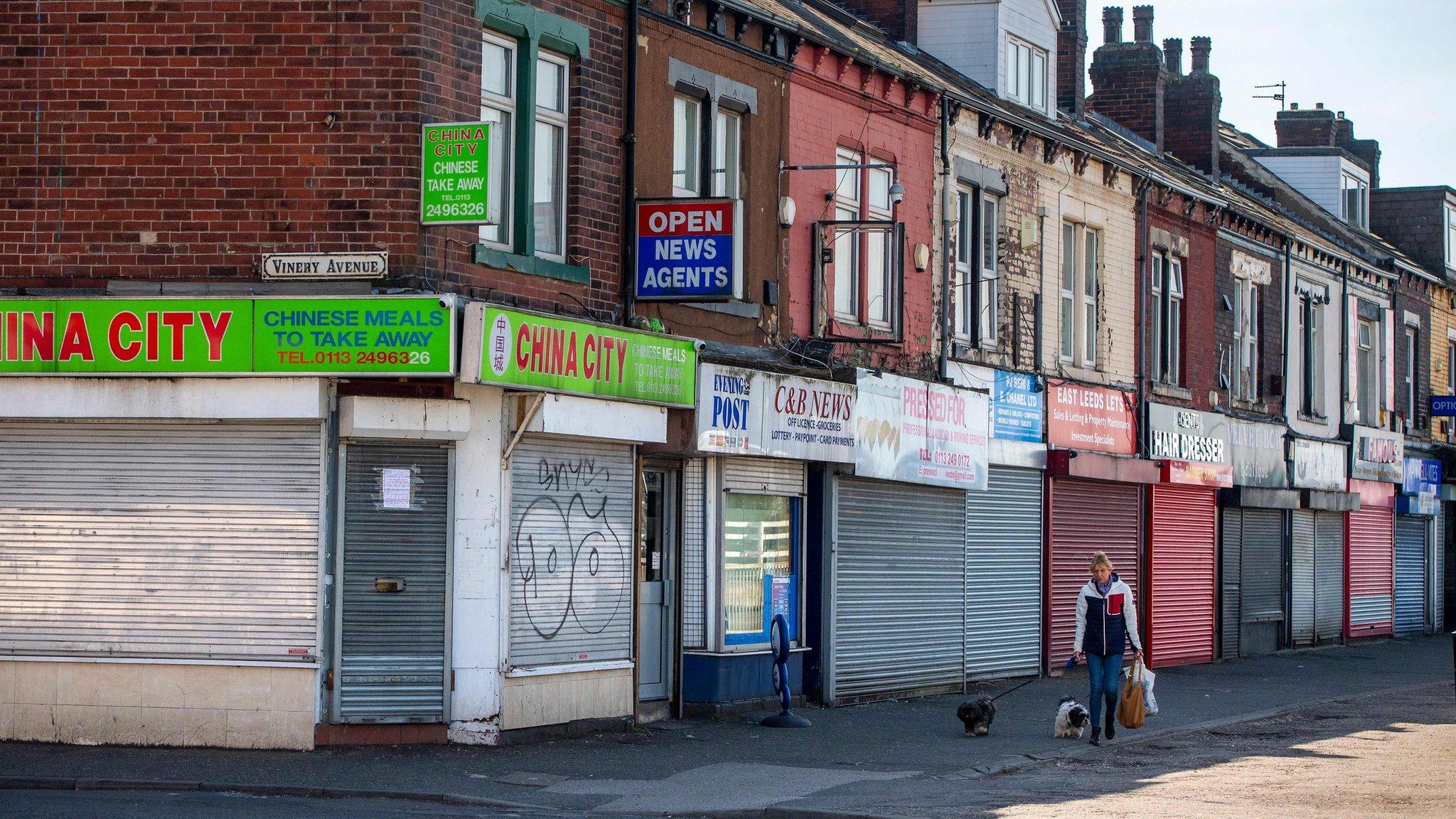
- Published15 April 2020
